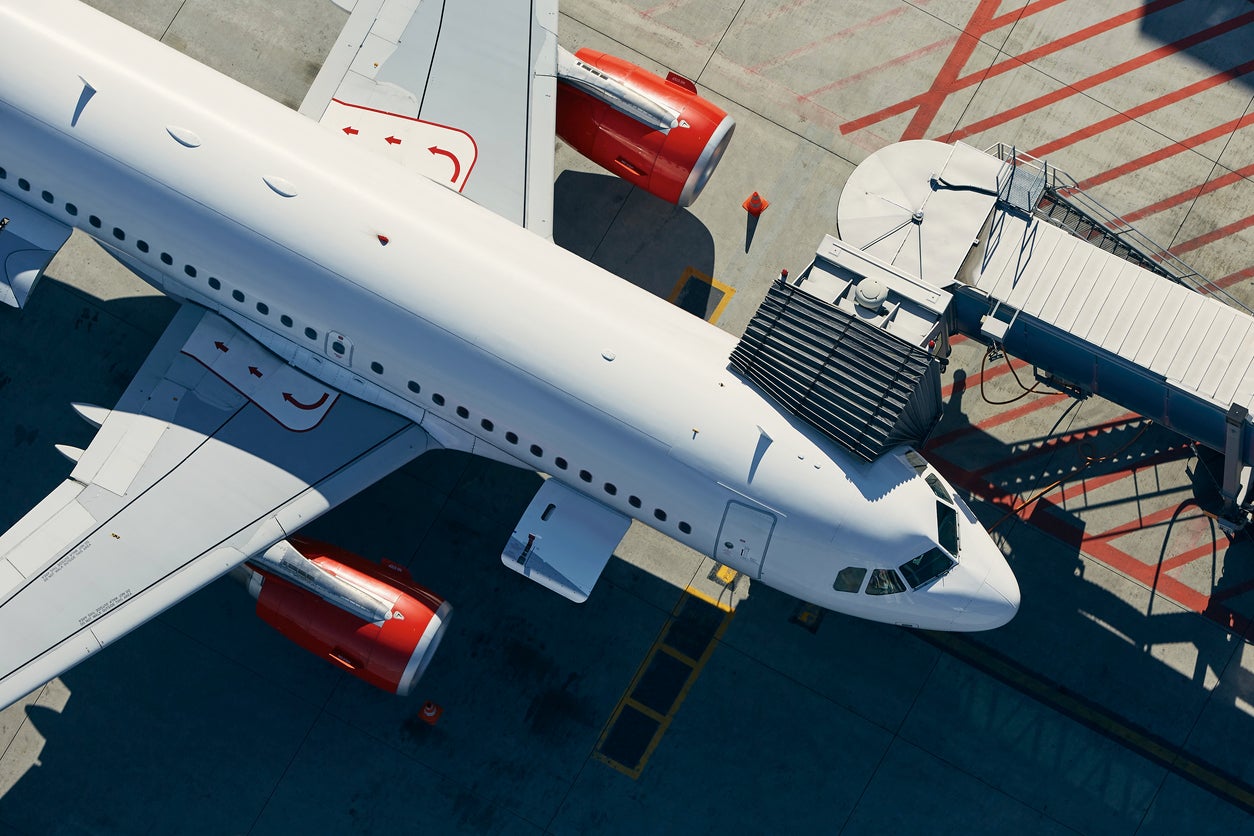The four-hour rule: How much compensation can you get for a flight delay?
Plane Talk: Time for a fair and measured way for airlines to atone for the long waits they cause

Your support helps us to tell the story
From reproductive rights to climate change to Big Tech, The Independent is on the ground when the story is developing. Whether it's investigating the financials of Elon Musk's pro-Trump PAC or producing our latest documentary, 'The A Word', which shines a light on the American women fighting for reproductive rights, we know how important it is to parse out the facts from the messaging.
At such a critical moment in US history, we need reporters on the ground. Your donation allows us to keep sending journalists to speak to both sides of the story.
The Independent is trusted by Americans across the entire political spectrum. And unlike many other quality news outlets, we choose not to lock Americans out of our reporting and analysis with paywalls. We believe quality journalism should be available to everyone, paid for by those who can afford it.
Your support makes all the difference.Which is more annoying: a four-hour delay when you are flying out, or when you are returning?
The former can be frustrating, and on a relatively quick trip erodes the time you can spend in your destination.
But at least I had something to look forward to. Coming home, once you have checked in for your flight you just want the journey to end as soon as possible.
From somewhere like Mexico’s Yucatan Peninsula, ideally you would take off at sunset after a fulfilling final day, arriving back early in the morning UK time after an eight-hour, 5,000-mile trip.
But for reader Leon, that wasn’t what happened. “A week ago I arrived back from Cancun into Manchester,” he writes. “We were due to arrive at 5.55am but in fact landed at 9.46am.
“By the time we got to the gate and opened the aircraft door it was 10.08am: they had trouble lining up the airbridge. So this put our delay at four hours and 13 minutes.
“I have filled the form out with the airline and they have offered us compensation at £260 per person which is for delays under four hours.
“The compensation they are paying out is based on the landing time and not, as I’ve read how delays are calculated, the time the aircraft doors open. Am I correct, and how do we pursue this? There’s a group of us on Facebook.”
The apparently trivial matter of when precisely the door of an aircraft was first opened after arrival in Manchester means a difference of hundreds of pounds for Leon – and, for the airline, that trivial problem of lining up the airbridge could involve tens of thousands of pounds.
Under air passengers’ rights rules – known as EC261 and transposed into British law after Brexit – delay compensation is triggered if you arrive three hours late at your destination and the airline is responsible.
The amount depends on the length of your flight. Leon’s was clearly over the long-distance threshold of 3,500km (2,175 miles). Because of the bizarre way that European lawmakers created the rules (and judges interpreted them), the flight-delay compensation deal is this:
- Up to 2 hours and 59 minutes: zero.
- 3 hours to 3 hours 59 minutes: £260
- 4 hours and above: £520
In other words, if the delay tips beyond four hours, the compensation doubles. The fact that Leon has been offered £260 shows that the airline takes responsibility. But is it enough?
The official definition used to calculate a delay is not when the plane touched down, nor when it reached the gate at Manchester airport. As Leon points out, the critical moment is when the door was opened.
Unless the airline can demonstrate that a door was open before 9.55am, then everyone on board is due the full £520 per person.
You can see, therefore, why an airline might try it on: the total bill could easily top £100,000. With carriers so hard-pressed by the effects of the coronavirus pandemic, who wouldn’t seek to halve the damage?
The Facebook consortium could demand documented evidence (for example, official logs) to support the “under four hours” assertion. If it is not forthcoming, the group could engage a lawyer. But this case also underlines just how crazy the rules are – and how badly they need to be made more sensible and equitable for both travellers and airlines.
Agreed, that four-hour delay (plus or minus a few minutes) must have been frustrating. But it Is it really appropriate that the airline hands over more than most passengers paid for the flight in the first place – and that the difference between a three-hour and a four-hour delay should be worth £260?
A three-hour delay for a middle-distance flight actually earns more (£350) than a long-haul trip, while on a short hop compensation shrinks to £220.
Bureaucrats in Brussels, European parliamentarians (including British MEPs) and out-of-touch judges have combined to come up with a ludicrous law.
Post-Brexit, the UK has compounded the madness by copying and pasting the flight-delay legislation – pausing only to convert the euro compensation amounts into sterling.
A half-hearted consultation on domestic flights is under way, which will link the amount of compensation to the fare paid and reduce the burden on airlines.
You might think cutting compensation for flight delays is anti-consumer. But the present system is a lottery that increases costs for airlines to the benefit of a few passengers. It’s time for a fair and measured way for airlines to atone for the delays they cause.
Join our commenting forum
Join thought-provoking conversations, follow other Independent readers and see their replies
0Comments